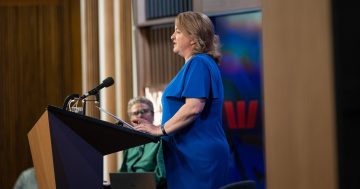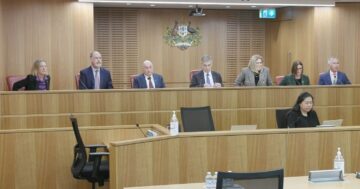
Feminised industries are being scrutinised for gender undervaluation in wages. Photo: Region.
The Federal Government has made its initial submission to the Fair Work Commission’s gender pay review, describing it as the next step towards reducing the gender pay gap.
Undervaluation priority awards are the focus of the review, with the commission taking a close look at wages in feminised industries.
The government is urging the FWC to consider the economy in addressing the pay gap, with the view to phasing in wage increases.
The review will look into gender undervaluation in five priority awards, which cover early childhood educators, in-home disability workers and health professionals.
During the last federal election campaign, Labor committed to making gender equality an object of the Fair Work Act and to strengthening the ability of the Fair Work Commission to order pay rises for underpaid women workers.
Minister for Women Katy Gallagher said with Labor now in government, its gender equality reforms are empowering the commission to undertake a historic review to properly value feminised work.
“We know that when an economy works for women, it works for all Australians,” she said.
“The Albanese Government is supporting women to earn more and keep more of what they earn.
“We want to properly value women’s work and accelerate progress to close the gender pay gap, now at a record low of 11.5 per cent.
“Closing the gender pay gap and supporting workers to receive fair pay is important for women, families and the community.
“Although the gender pay gap is reaching historic lows, there is still work to do. That’s why we have made this submission to the Fair Work Commission, to support this important process to address historic gender undervaluation in modern awards.”
The commitment to address gender undervaluation builds on other moves to support workers in the care and community sector.
The government has previously committed to support wage increases – $11.3 billion for aged care workers and $3.6 billion over two years for early childhood educators.
Minister for Employment and Workplace Relations Murray Watt said workers shouldn’t be valued less because they are women or because they work with women.
“Our government has put gender equality at the centre of the workplace relations system, to properly value feminised work,” he said.
“Our workplace law reforms are giving women workers more power to achieve fairer wages and this case will assist women’s work to be properly valued.
“Our reforms mean the Fair Work Commission must take into account eliminating gender-based undervaluation of work and addressing gender pay gaps when it is making decisions.”
As part of its review, the Commission will also consider broader economic impacts, including on employment growth, inflation and the sustainability, performance and competitiveness of the national economy.
In its submission to the review, the Commonwealth said any wage increases should be implemented in an “economically and fiscally responsible manner” in order to promote productivity and economic growth for Australia’s future prosperity.
It added that wage increases must have due regard to the likely impact of any exercise of the Commission’s modern award powers on employment growth, workforce allocation and impacts, inflation, productivity and business competitiveness.
They must also take into account the sustainability, performance and competitiveness of the national economy.
In the current context, the submission says this should include phasing to manage the potential workforce, consumer, business competitiveness, and economic and fiscal impacts.
“The Commonwealth supports the commission’s review process and the broader task of identifying and addressing gender undervaluation in the modern awards system,” the submission states.
The Commonwealth’s submissions regarding the commission’s approach are underpinned by the following principles:
- Gender equality: advancing gender equality by remedying gender undervaluation in modern awards to narrow the gender pay gap and reduce gender segregation in industries
- Close the gap: adopting positions that align with commitments made through the National Agreement on Closing the Gap and improving First Nations’ outcomes, including through recognising First Nations workers’ cultural skills
- Consistent outcomes for workers: aligning outcomes for workers, especially so that comparable qualifications receive comparable remuneration across affected sectors
- Economically responsible phased approach: an economically and fiscally responsible approach to wage increases, such as through phasing, where appropriate, to manage potential workforce, macroeconomic and budgetary impacts, and
- Balancing transitions to servicing, workforce and consumer outcomes: considering the risks to business, the maintenance and expansion of critical workforces, outcomes for consumers, women’s workforce participation and the long-term sustainability of affected sectors.
The Commission is reviewing modern award classifications and minimum wage rates on work value grounds to “remedy potential gender undervaluation”, starting with the priority awards of:
- Aboriginal and Torres Strait Islander Health Workers and Practitioners and Aboriginal Community Controlled Health Services Award 2020
- Children’s Services Award 2010
- Health Professionals and Support Services Award 2020
- Pharmacy Industry Award 2020, and
- Social, Community, Home Care and Disability Services Industry Award 2010.
Initial submissions were to be lodged with the Commission by 27 September this year, with parties to lodge submissions and evidence in reply by 15 November.
A directions hearing is set for 19 November this year.





















